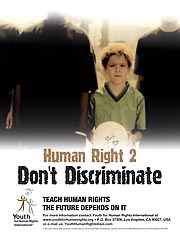|
Human Rights Watch Backs UN Human Rights Council
March 30, 2005
The U.N. Secretary-General is right to conclude that the spectacle of abusive governments flocking to the U.N. Commission on Human Rights has so discredited the commission that it is time to simply start over, Human Rights Watch said recently.
In place of the commission, Secretary-General Kofi Annan has proposed a Human Rights Council – a smaller body that would meet year-round. He is making the proposal in a new report officially released today, “In Larger Freedom: Towards Development, Security and Human Rights for All.”
The current U.N. Commission on Human Rights ordinarily meets only six weeks out of the year, in March and April. That leaves a rushed agenda and frequently precludes urgent or preventive action. Governments with extremely poor human rights records often manage to stymie any condemnation of themselves, Human Rights Watch said.
“The Secretary-General is proposing a structure that could do much more to protect human rights than what the U.N.’s been doing for the last fifty years,” said Kenneth Roth, executive director of Human Rights Watch. “This is a courageous proposal and we support it.”
A human rights body working year-round would also allow for more consistent follow-up on recommendations, better use of the U.N.’s monitoring procedures and more effective responses to crises, Human Rights Watch said.
The Secretary-General’s report concludes that members in the new body should undertake to abide by the highest human rights standards – a key to distinguishing the new Council from the current Commission.
“Member states should understand from the outset that membership in a human rights body is a privilege, not a right, and that with it comes the responsibility to live by the standards being upheld,” Roth said.
On the new Human Rights Council, Human Rights Watch emphasized the importance of making sure that the new body continues the most valuable elements of the current system. Those elements include the independent human rights monitoring procedures, known as rapporteurs and working groups, and the active participation of nongovernmental organizations in the work of the body.
For more information on the Secretary-General’s report, see http://www.un.org/largerfreedom/contents.htm.
|



